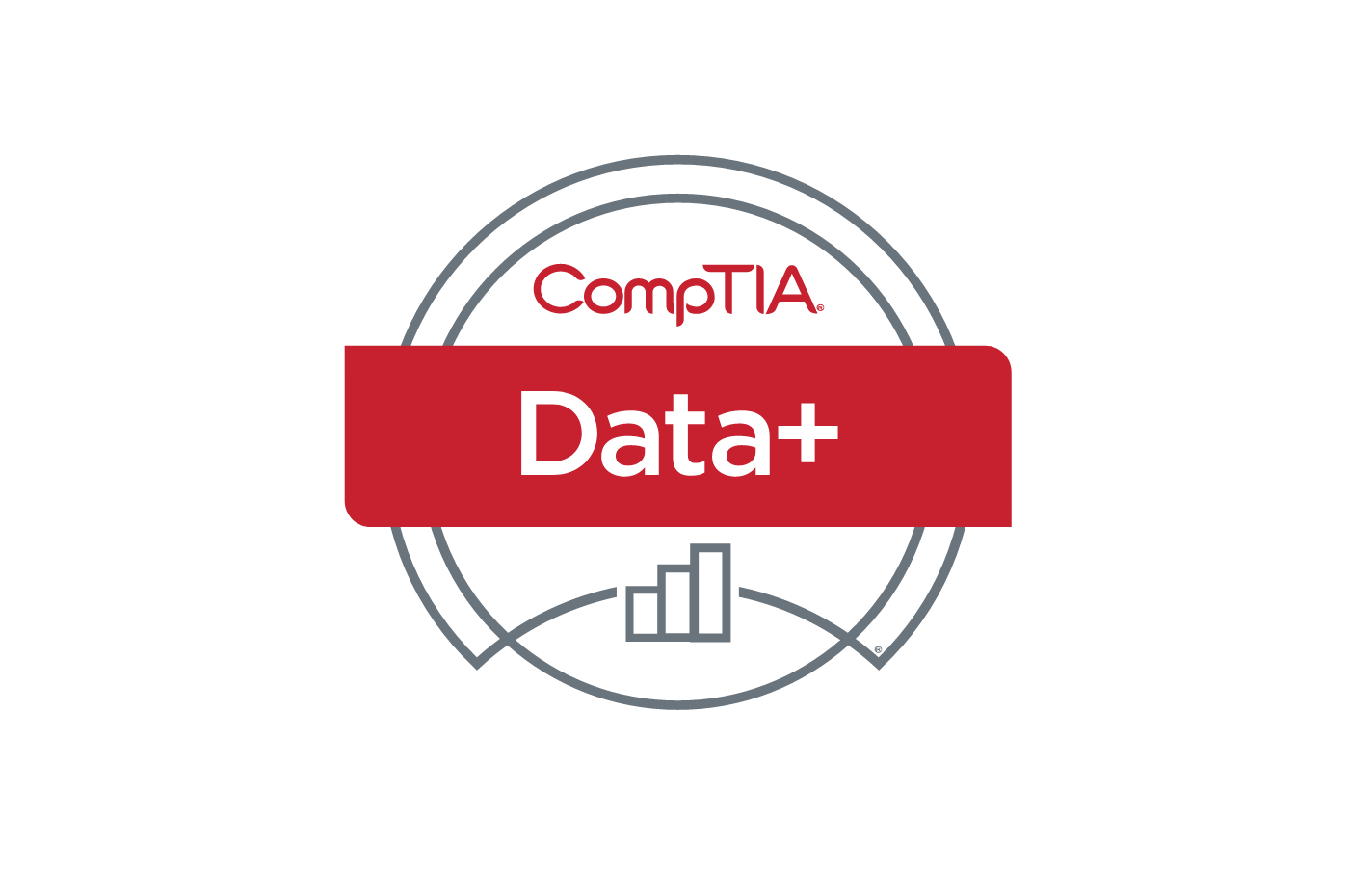CompTIA Data+ Course
- 40 Hours
CompTIA Data+ Course validates the skills and knowledge required for a career in data analytics and management. It covers various topics such as data collection and integration, data quality, data warehousing and business intelligence, and data visualization.

About the course
The CompTIA Data+ course is designed for people who are interested in working with large data sets, and want to learn how to extract valuable insights from them. The course is vendor-neutral, which means it doesn’t focus on a specific technology or platform, allowing individuals to apply the concepts to a variety of tools and systems.
The course includes both theoretical and practical components, with a strong emphasis on hands-on experience. The CompTIA Data+ certification requires passing a single exam (DA0-001), which consists of 90 multiple-choice and performance-based questions. The exam covers topics such as data management, data analysis, data visualization, and data security.
Course Objectives
- Mining data
- Manipulating data
- Visualizing and reporting data
- Applying basic statistical methods
- Analyzing complex datasets while adhering to governance and quality standards throughout the entire data life cycle
Course Outline
- Identifying Basic Concepts of Data Schemas
- Understanding Different Data Systems
- Understanding Types and Characteristics of Data
- Comparing and Contrasting Different Data Structures, Formats, and Markup Languages
- Explaining Data Integration and Collection Methods
- Identifying Common Reasons for Cleansing and Profiling Data
- Executing Different Data Manipulation Techniques
- Explaining Common Techniques for Data Manipulation and Optimization
- Applying Descriptive Statistical Methods
- Describing Key Analysis Techniques
- Understanding the Use of Different Statistical Methods
- Using the Appropriate Type of Visualization
- Expressing Business Requirements in a Report Format
- Designing Components for Reports and Dashboards
- Distinguishing Different Report Types
- Summarizing the Importance of Data Governance
- Applying Quality Control to Data
- Explaining Master Data Management Concepts
